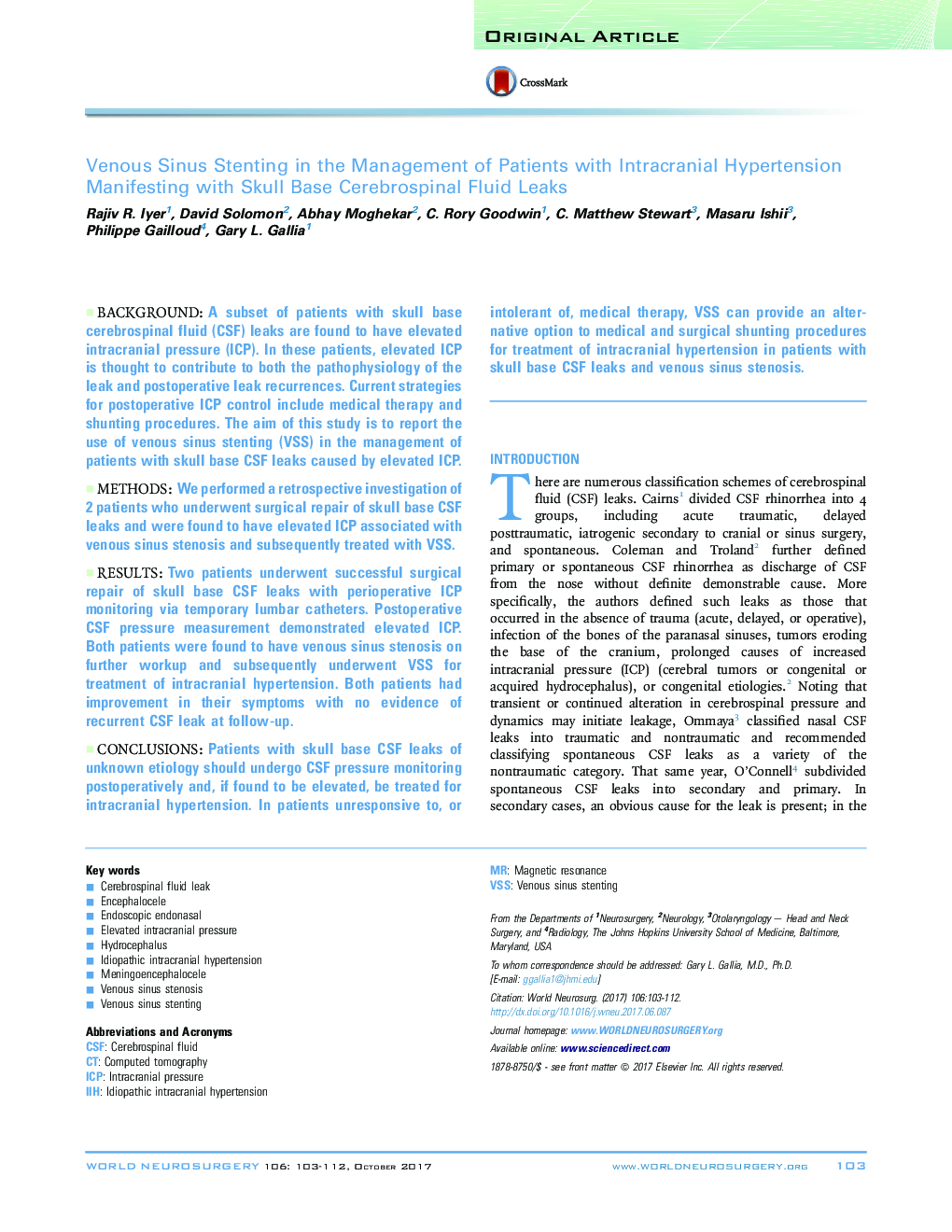| Article ID | Journal | Published Year | Pages | File Type |
|---|---|---|---|---|
| 5633969 | World Neurosurgery | 2017 | 10 Pages |
BackgroundA subset of patients with skull base cerebrospinal fluid (CSF) leaks are found to have elevated intracranial pressure (ICP). In these patients, elevated ICP is thought to contribute to both the pathophysiology of the leak and postoperative leak recurrences. Current strategies for postoperative ICP control include medical therapy and shunting procedures. The aim of this study is to report the use of venous sinus stenting (VSS) in the management of patients with skull base CSF leaks caused by elevated ICP.MethodsWe performed a retrospective investigation of 2 patients who underwent surgical repair of skull base CSF leaks and were found to have elevated ICP associated with venous sinus stenosis and subsequently treated with VSS.ResultsTwo patients underwent successful surgical repair of skull base CSF leaks with perioperative ICP monitoring via temporary lumbar catheters. Postoperative CSF pressure measurement demonstrated elevated ICP. Both patients were found to have venous sinus stenosis on further workup and subsequently underwent VSS for treatment of intracranial hypertension. Both patients had improvement in their symptoms with no evidence of recurrent CSF leak at follow-up.ConclusionsPatients with skull base CSF leaks of unknown etiology should undergo CSF pressure monitoring postoperatively and, if found to be elevated, be treated for intracranial hypertension. In patients unresponsive to, or intolerant of, medical therapy, VSS can provide an alternative option to medical and surgical shunting procedures for treatment of intracranial hypertension in patients with skull base CSF leaks and venous sinus stenosis.
